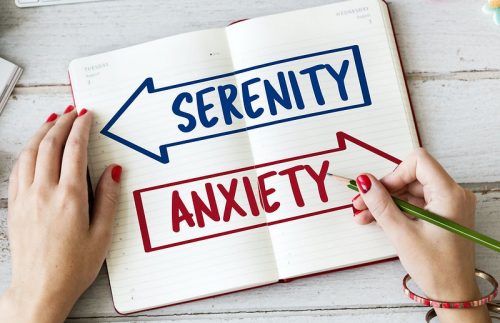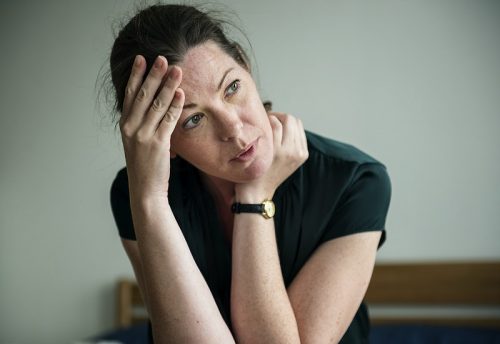You may have heard the terms panic attack and anxiety attack used by most people interchangeably. They seem to have the same meaning and similar symptoms, some of which may include shortness of breath, nausea, and rapid heartbeat. However, anxiety vs. panic attack has distinct features in practice, and behavioral health providers use these phrases for specific disorders and symptoms.
Panic attack is a mental health disorder that relates to sudden or intense feelings of anxiety. Often, the symptoms and emotional stress that come along with it are uncontrollable. It leads to overthinking a pending doom, fear, or danger. It becomes alarming when accompanied by physical symptoms such as chills, hot flashes, rapid pounding heart rate, nausea, chest pain, shortness of breath, and sweating.
There is no specific explanation of the direct cause of a panic disorder or attack. However, research and studies show that a particular mental health condition can be linked to a combination of things, including unforgettable, stressful, or traumatic events in life or death of a friend, family member, pet, or special someone.
For most people with panic attack disorder, unexpected panic attacks and things can get entirely uncomfortable. Fortunately, this particular condition is not dangerous. One can practice slow breathing for immediate relief from symptoms of panic disorder and generalized anxiety disorder. It goes deeply and gently through your nose.
But, it is essential to note that treating panic attacks alone may not be applicable since the condition requires specific treatment and medication provided by a medical professional or a licensed therapist. With the proper treatment and medication, one can easily live with the symptoms and manage daily tasks better.
What Is An Anxiety Attack, And Does it Affect A Person?
Anxiety attack, sometimes called anxiety disorder, usually manifests the same symptoms as panic attack. However, a few episodes of intense fear suddenly occur without warning and often pop out of the blue. Sometimes, an anxiety attack happens even when a person least expects it. For some people, obvious triggers may cause it, such as riding in an elevator, opening a sealed box, driving a vehicle in a congested space, running low on time, and many more.
The physical symptoms of an anxiety disorder are much the same as a panic attack. There’s shortness of breath, fluttering or pounding heart, chest pain, sweating, restlessness, nausea, and chills. But in severe conditions, an anxiety attack can be worse than a panic attack due to the aftermath of the mental disorder.
The constant psychological battle with anxiety will soon bring negative impacts such as difficulty concentrating and analyzing situations, sleep pattern problems (difficulty sleeping or staying awake), the inability to control violent emotions (anger, frustration, rage), and feeling constantly irritable and moody.
In some people, an anxiety attack is manageable as long as they commit to their mental wellness approach of keeping an active lifestyle, getting enough quality of sleep, engaging with people (friends and family), eating healthy foods, exercising regularly, drinking a lot of water, and meditating. However, some individuals can no longer control their condition. These people are the ones that need professional and medical attention.
So if you or you know someone who might be dealing with a mental health condition and psychiatric disorders, always reach out for help. Seek medical attention from a mental health professional. Ask for a licensed professional’s advice, and take the properly prescribed medication. It is always important to take care of our overall wellness.

What Triggers The Mental Health Condition?
Stressful or devastating health problems are among the most common triggers of an anxiety attack. Other equally potent triggers include medications like cough syrup and birth control pills, concerns about employment, money, bills, and pessimism.
Risk factors for anxiety disorder include smoking, drinking alcohol, and using recreational drugs. Other risk factors include a family history of mental health disorders such as obsessive compulsive disorder, a chronic health condition, being female (women are two times more likely than men to suffer from the disorder), being genetically predisposed to anxiety, and having experienced trauma or abuse during childhood.
What does an anxiety attack feel like?
When you are suffering from an anxiety attack, the first thing you realize is losing control over yourself or the situation. You may have chest pain, and your heart rate is much faster than usual. You feel like you’re choking and find it difficult to breathe normally. You also tremble and experience hyperventilation. You feel like you are going crazy.
It’s important to remember that although the symptoms of anxiety attack can feel similar to those of a heart attack, they are not the same thing. While an anxiety attack can be incredibly distressing and overwhelming, it is not usually life-threatening, like a heart attack. If you are ever unsure whether you are experiencing an anxiety attack or a heart attack, seek medical attention immediately to rule out any serious health concerns.
How do you calm an anxiety attack?
Initially, you must acknowledge that you are experiencing an attack. Then, you try to regain control by closing your eyes and breathing in and out slowly and consciously. It also helps you count if you steadily count every time you breathe. You must learn how to question and fight your thoughts to gain control over yourself eventually.
What’s The Difference Between A Panic Attack And An Anxiety Attack?
Panic and anxiety attacks are two different conditions but share many of the same symptoms.
Anxiety attacks usually happen as a reaction to a perceived danger or stressor, while panic attacks tend to and can occur without any trigger at all. Panic attacks are severe and distracting, and their physical symptoms are often worse than those of anxiety. There are times when anxiety symptoms are mild to moderate. Additionally, anxiety symptoms last longer than panic attack symptoms, which typically resolve in minutes.
What Is The Best Medicine For Anxiety Attacks?
Benzodiazepines are among the most popular anti-anxiety drugs recommended by doctors for immediate pain relief, while selective serotonin reuptake inhibitors or SSRIs are prescribed for a longstanding anxiety attack. However, these medications do not cure anxiety but provide temporary relief. They also come with safety precautions and side effects.
Serotonin-norepinephrine reuptake inhibitors, or SNRIs, are another type of antidepressant that is commonly used to treat anxiety disorders. SNRIs work by increasing the amount of serotonin and norepinephrine in the brain. These drugs can be effective in treating depression, panic attacks, social anxiety disorder, and obsessive-compulsive disorder, among other mental disorders.
What Should I Do After An Anxiety Attack?
Listen to your body and breathe in and out so that you can slowly relax. If the adrenaline is still there and your body is still warm from the rush, physical activity like walking outside so that the built-up energy can go somewhere. You can also diffuse some oils, such as lavender or chamomile in your room for a more relaxing feeling.
What happens after an anxiety attack?
Some people feel warm and energetic after an anxiety attack because of the fight and flight response’s persistence. Still, they feel very tired of others, as though the adrenaline has expired and a tremendous crash has followed.
Is it OK to sleep after a panic attack?
You will most probably have difficulty going back to sleep right after a panic episode, as you will be restless just thinking about what caused the episode in the first place. Also, you’ll most likely be concerned that it’s going to happen again. Sleep might be all right, but you must take steps to eliminate the panic attack.
What is the aftermath of an anxiety attack?
When an anxiety attack has finally ended, most people are relieved and can gradually relax. However, those who experience severe anxiety go through an emotional lag when all heightened emotions have dropped down. They are left feeling spaced out and shattered.

How Do I Stop Feeling Jittery?
If you’re a coffee drinker, you first should not drink too much coffee for that particular day, or you can lessen your caffeine intake regularly. Another reason for feeling jittery is anxiety, and you can get rid of your jitters by practicing deep breathing and relaxation techniques like muscle contractions. It is also important to drink plenty of water to be constantly hydrated.
Why Does My Body Feel Shaky Inside?
There are several reasons why you shake inside, but one of the most common reasons is anxiety. When someone is anxious, his body can react as if his body is being attacked, causing adrenaline release. This may lead to bodily responses such as shaking, shortness of breath, and palpitations.
Why do I feel shaky and weak?
Weakness and shaky hands can indicate anxiety, but they could also mean that you suffer from hypoglycemia, hypertension, low blood pressure, dehydration, or sleep deprivation. They could also indicate more severe conditions like congestive heart failure or stroke.
Why do I feel jittery and shaky?
Shakiness is a common indication of anxiety, which a lot of people experience at some point in their lives. When you are anxious, you also feel nervous and jittery due to the imbalance of chemicals in the body when activating the fight and flight response.
When you experience panic attacks you can also experience shakes and jitters, which are signs of the fight or flight response. How do I stop feeling jittery? The first thing you need to do is to make sure that you are not actually experiencing a panic attack. This can be done by taking time out from whatever situation you find yourself in and evaluating your symptoms. If they continue but don’t worsen then it is likely that these are just normal feelings of anxiety.
What causes a person to shake?
Nervousness and anxiety often lead an individual to shake. It is a symptom most people experience when anxious, but there may be other reasons why the body shakes, such as hypoglycemia and hypertension.
In some cases, fear overwhelms an individual to such an extent that it triggers the body’s fight or flight response, causing rapid heartbeat, trembling, and shaking. This reaction is the body’s way of preparing to face or flee from a perceived threat, even if it’s not physically present.
Are shaky hands a sign of anxiety?
Trembling or shaky hands is a usual physical indication that you may go through when you have a social anxiety disorder. When you are anxious and shaking, your fight-or-flight response may be active.

Anxiety is among the most prevalent mental health disorders, affecting approximately 20% of American adults yearly. Anxiety can considerably impact an individual’s life, but only very few who experience symptoms ask for help or treatment.
Effective treatments can produce better results and improve one’s well-being, so you must speak to your doctor if you are experiencing anxiety or panic attack symptoms. Women actually have a higher likelihood of having anxiety symptoms, so the Women’s Preventative Services Initiative now suggests screening for anxiety for all females above 13 years old.
A mental health provider typically asks you questions regarding your symptoms, and these include factors such as duration, intensity, and the effect it has on your usual everyday functioning. Depending on your assessment results, your provider can then provide a diagnosis based on the diagnostic and statistical manual or DSM-5 criteria.
How do I stop panic attacks forever?
Stopping panic attacks forever may not be possible, but there are ways to manage and reduce their frequency and intensity. It’s important to understand that panic attacks are a symptom of anxiety, not a standalone condition. Therefore, treating the underlying anxiety is key to reducing panic attacks.
One effective way to manage anxiety and panic attacks is through therapy. Cognitive-behavioral therapy (CBT) is a common approach used to treat anxiety and panic attack disorders. This type of therapy helps identify and change negative thought patterns that contribute to anxiety and panic attacks. Additionally, relaxation techniques such as deep breathing exercises, mindfulness, and meditation can also help manage anxiety and reduce the likelihood of panic attacks.
Exposure therapy is another option for treating anxiety disorders. This therapy exposes the patient to their feared stimuli while in a safe environment, helping them learn how to manage their panic attacks.
Making lifestyle changes can also help in reducing anxiety or panic attacks. Regular exercise, getting enough sleep, and avoiding caffeine and alcohol can all contribute to better mental health. Moreover, developing healthy coping mechanisms such as journaling, spending time outdoors, joining your local or even online anxiety and depression association, and practicing gratitude can also be helpful in managing anxiety and preventing panic attacks.
While it may not be possible to completely stop panic attacks forever, managing anxiety through therapy, relaxation techniques, and lifestyle changes can reduce their frequency and intensity. It’s important to seek professional help if you are experiencing anxiety and panic attacks.
Can panic attacks be silent?
Yes, panic attacks can be silent. A silent panic attack is a panic attack where a person may not display any usual signs or symptoms of a regular panic attack but can still experience the emotional symptoms that come with a panic attack, such as extreme fear and a distressing rush of physical sensations.
Is It Normal To Have Panic Attacks Every Day?
What are 5 coping skills for anxiety?
